Attending the question and answer session were comrades: Nguyen Duc Trung - Secretary of the Provincial Party Committee, Chairman of the Provincial People's Committee; Nguyen Van Thong - former Standing Deputy Secretary of the Provincial Party Committee, delegate of the Provincial People's Council; Vo Thi Minh Sinh - Member of the Standing Committee of the Provincial Party Committee, Chairwoman of the Vietnam Fatherland Front Committee of Nghe An province and comrades of the Standing Committee of the Provincial Party Committee, the Provincial Party Executive Committee, Vice Chairmen of the Provincial People's Council, Provincial People's Committee, Deputy Head of the Provincial National Assembly Delegation.
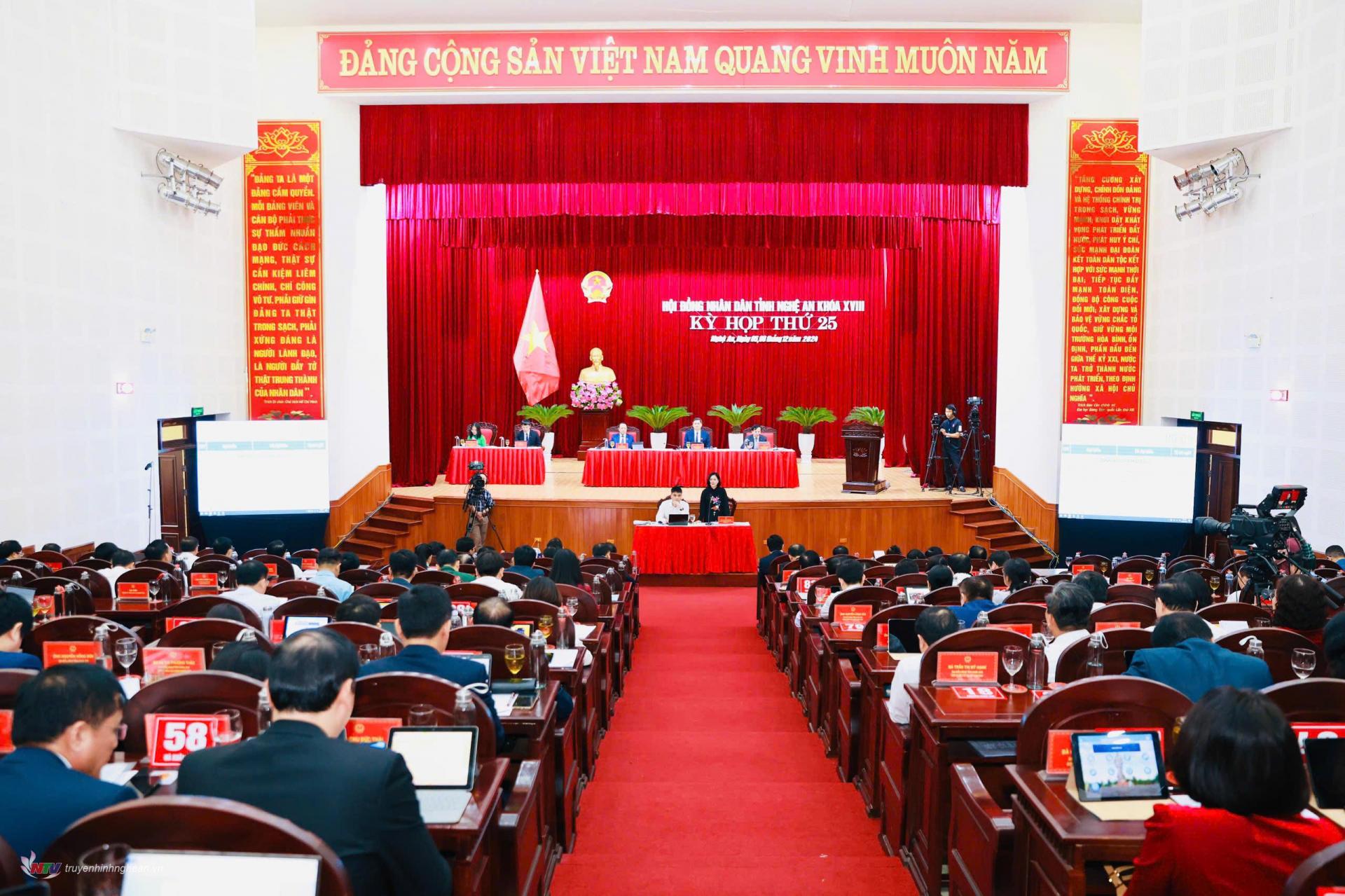 |
| Overview of the question and answer session in the medical field. |
At the meeting, the Provincial People's Council conducted questions and answers on a group of issues regarding the supply of drugs and health insurance medical examination and treatment services for health insurance patients, especially patients with serious illnesses and poor patients, ethnic minority and mountainous areas; the implementation of the target on combating malnutrition in children in the province for the period 2021-2025 as well as the implementation of the autonomy mechanism in public hospitals in the province at present;
 |
| Director of the Department of Health Le Thi Hoai Chung answered questions. |
In the report presented at the meeting, Director of the Department of Health Le Thi Hoai Chung said that the sector currently has 1 unit with autonomy in self-guaranteeing regular and investment expenditures (group I); 18 units with autonomy in self-guaranteeing regular expenditures (group II); 18 units with autonomy in self-guaranteeing part of regular expenditures (group III) and 9 units with regular expenditures guaranteed by the State. The Director of the Department of Health also said that many hospitals have shifted from the mindset of "serving" to "providing services", gradually satisfying patients. The implementation of the autonomy mechanism has helped reduce annual budget expenditures, with about 1,000 billion VND in salaries for 8,978 civil servants and employees in 2023 alone.
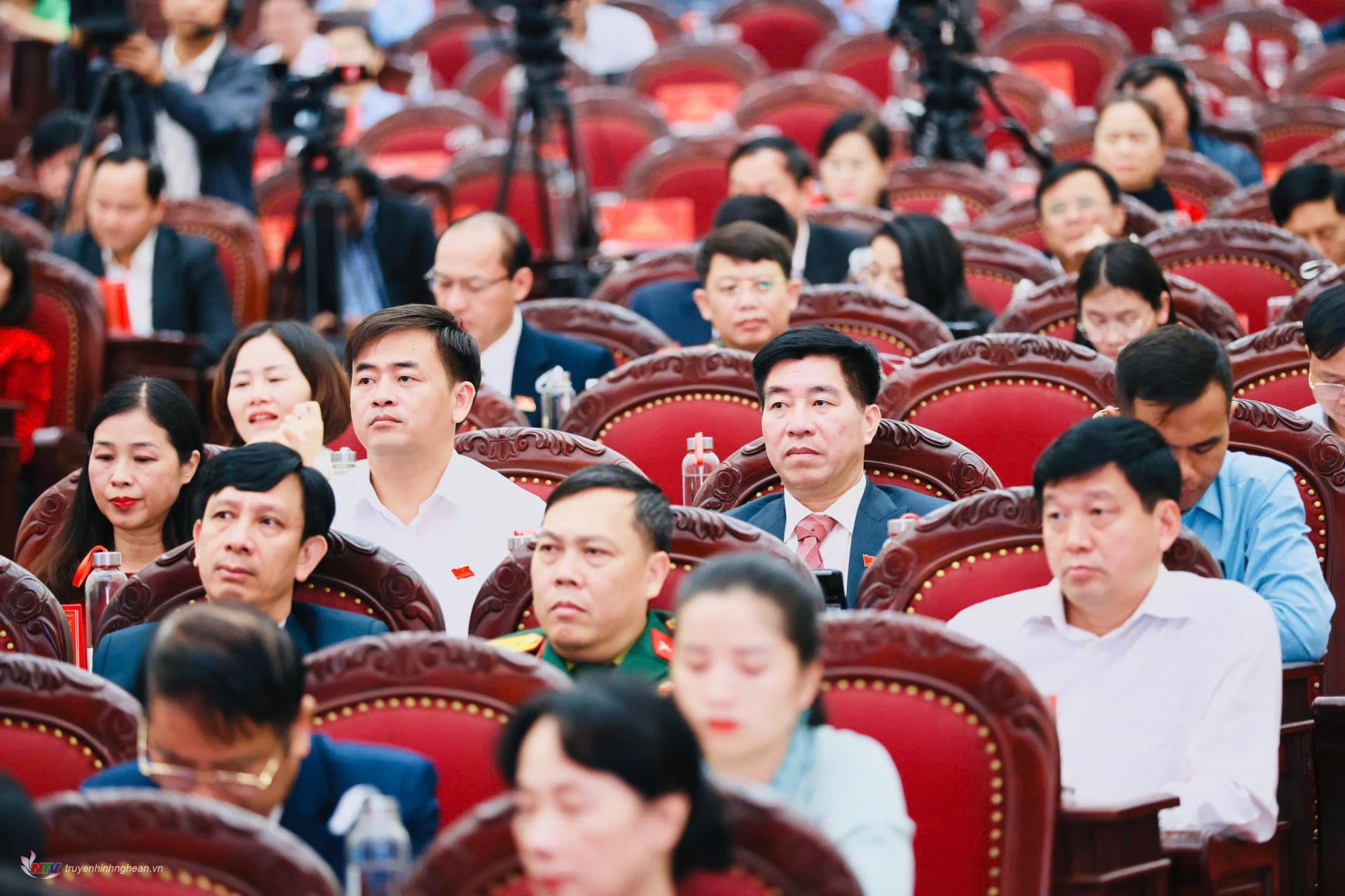 |
| Provincial People's Council delegates attending the meeting. |
In the province, there are more than 531 health examination and treatment facilities covered by health insurance covering all levels. In the Northwest and Southwest regions, there are 2 provincial general hospitals providing many essential health services for people in mountainous areas. Therefore, the implementation of health examination and treatment services for health insurance patients, especially patients with serious illnesses and poor patients, ethnic minority and mountainous areas continues to receive attention, gradually meeting the needs of patients.
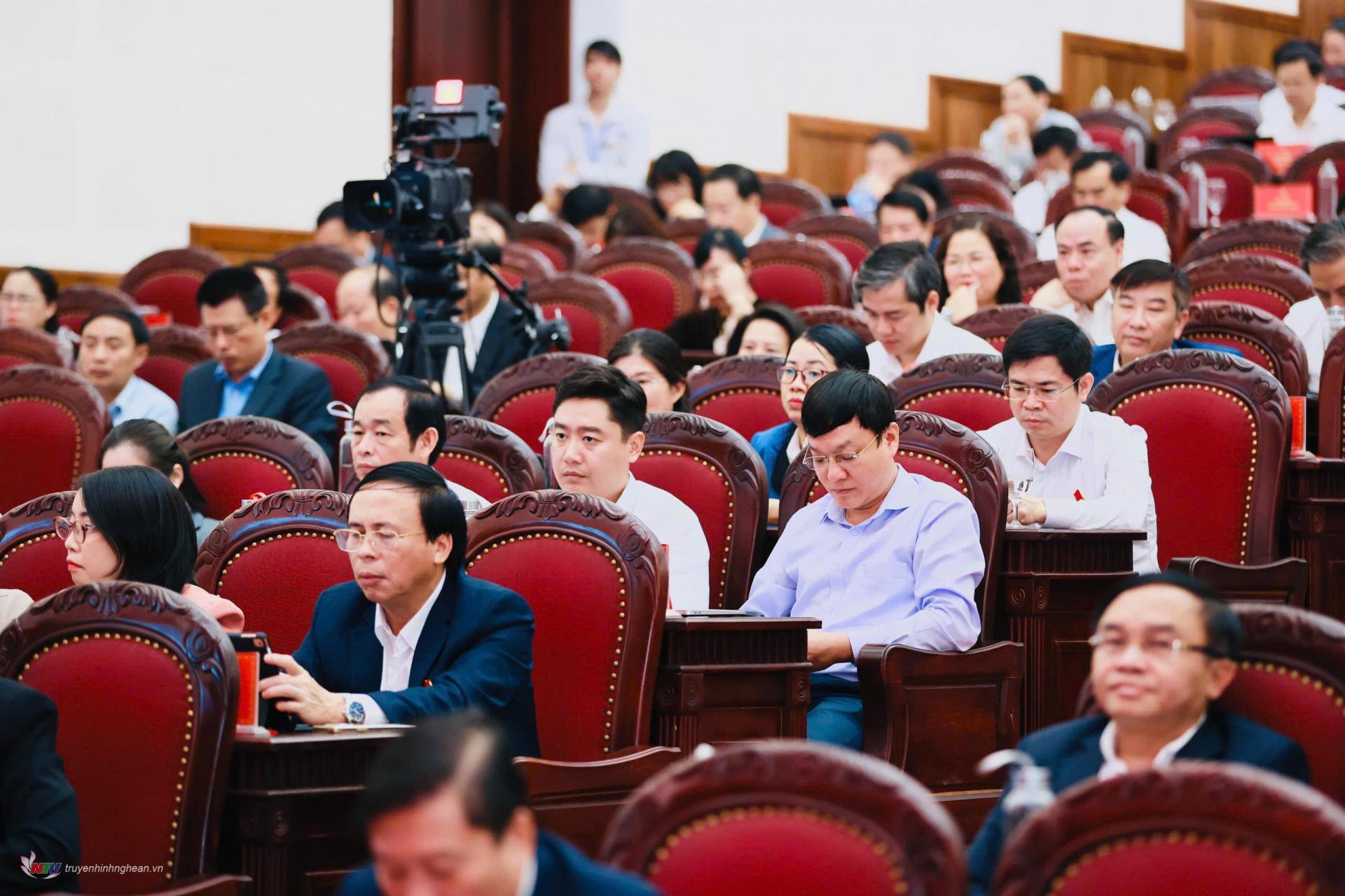 |
| Provincial People's Council delegates attending the meeting. |
As of November 2024, there were more than 5.3 million health examinations and treatments covered by health insurance. The cost of medical examinations and treatments was more than VND 5,330 billion, of which health insurance paid nearly VND 4,817 billion. At 10 medical examination and treatment facilities in mountainous areas, the cost of technical services also accounted for 48% of the total cost. The health sector has been active and proactive in implementing bidding and procurement activities to ensure enough medicine for people. Medical units have closely followed regulations, proactively and actively planned, arranged funds, and organized bidding and procurement. In the first 9 months of 2024, medical facilities used 6,447 items with a total drug cost of about VND 928 billion. The winning rate reached over 75%, basically meeting the needs of medical examination and treatment for people. In addition, the health sector has actively implemented synchronous solutions to improve nutrition. The annual rate of child malnutrition has gradually decreased according to plan.
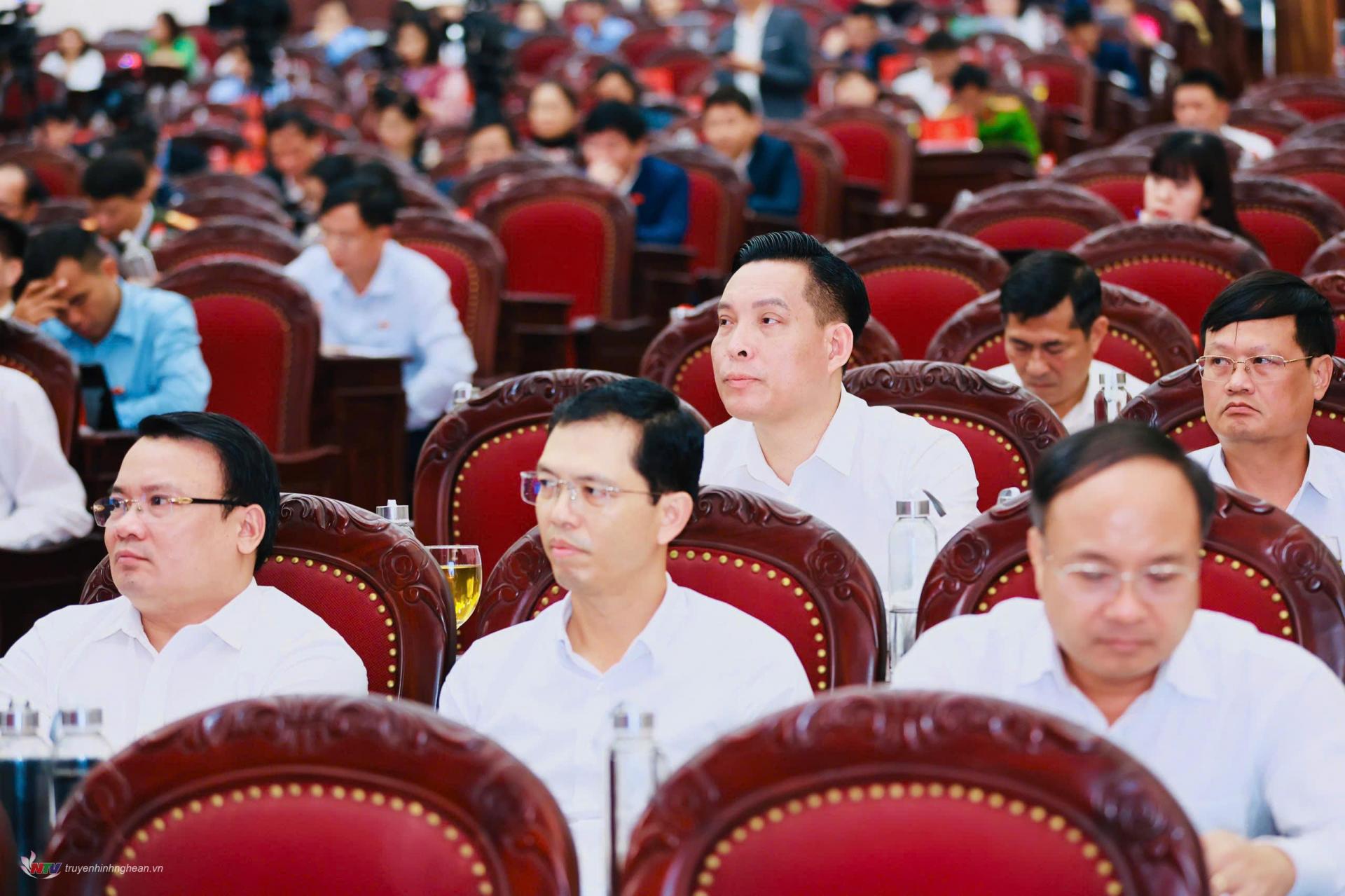 |
| Provincial People's Council delegates attending the meeting. |
In addition to the achieved results, in the report presented at the meeting, Director of the Department of Health Le Thi Hoai Chung said that medical examination and treatment still face certain difficulties and challenges. The supply of drugs and materials for medical examination and treatment at some medical facilities is still lacking, affecting medical examination and treatment and the rights of patients. Some medical facilities in mountainous areas have not been able to deploy many techniques. Many units still lack human resources, facilities, and high-tech medical equipment. Overcrowding still occurs at some provincial and district hospitals.
According to Ms. Le Thi Hoai Chung, the health sector is currently facing a number of difficulties and challenges. The consequences of the Covid-19 pandemic still affect medical examination and treatment, such as: the supply chain of drugs, supplies, chemicals, and medical equipment is broken, affecting the results of procurement and bidding... Changes in mechanisms and policies also cause a number of difficulties and problems, especially in bidding for drugs, equipment, and health insurance payments.
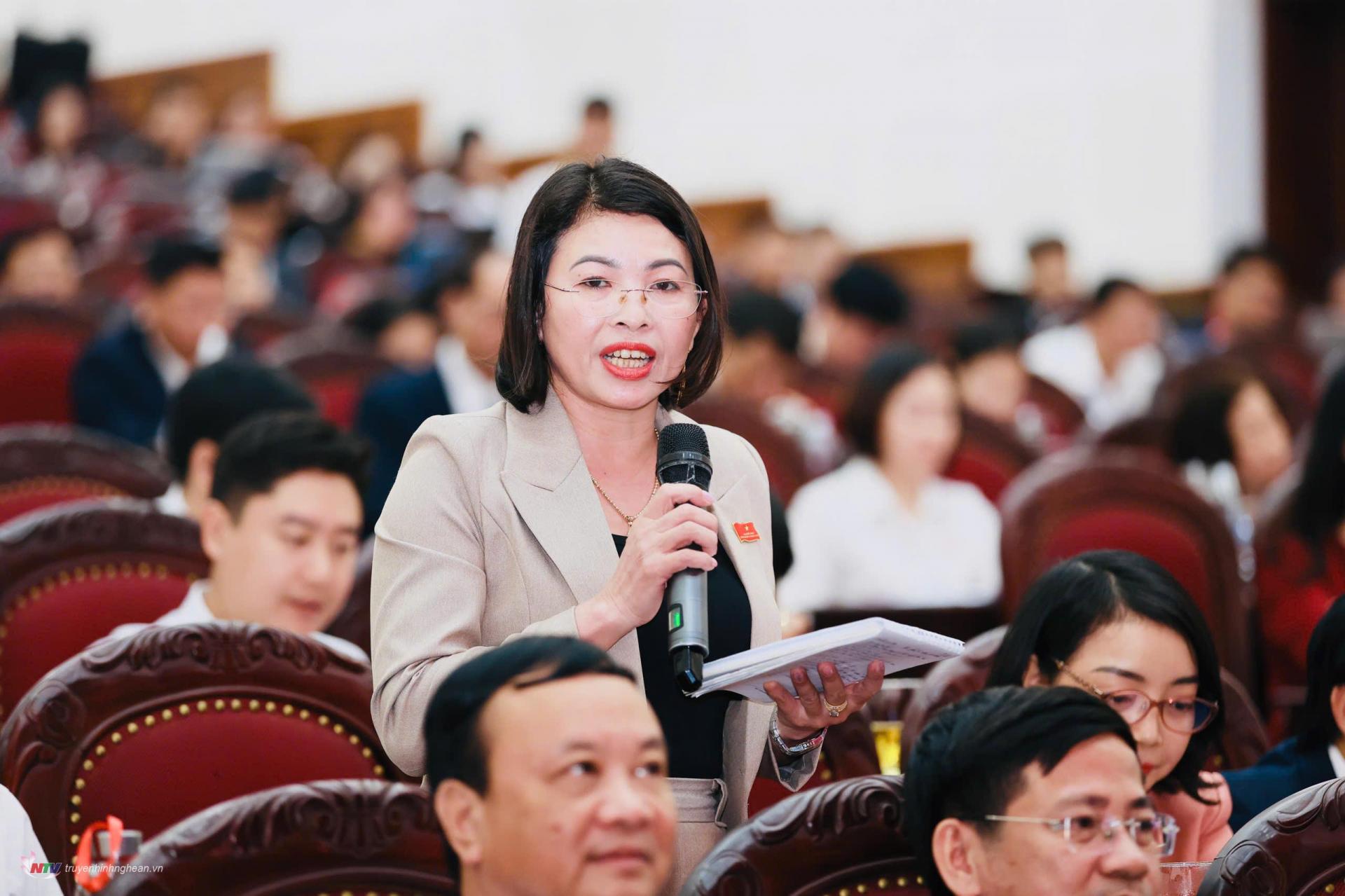 |
| Delegate Nguyen Thi Huong (Hung Nguyen constituency) asked about the issue of recruiting high-quality human resources at autonomous medical facilities. |
Concerned about the issue of autonomy in public health facilities, delegate Nguyen Thi Huong (Hung Nguyen constituency) raised the issue that although the units are given autonomy, there is no separate salary mechanism for good doctors to attract high-quality human resources. At the same time, autonomous units of groups III and IV are not allowed to decide the number of employees. The procurement and bidding work is done through many units. The delegate asked the Director of the Department of Health to inform about the current situation, causes and solutions.
 |
| Director of the Department of Health Le Thi Hoai Chung affirmed that the number of people working in the health sector of Nghe An has not yet reached the target, while every year the staff must continue to be streamlined. |
Director of the Department of Health Le Thi Hoai Chung said: Regarding the issue of attracting good doctors, human resources for autonomous units must comply with legal regulations and paying policies for high-quality human resources must not be outside the regulations. In autonomous units of group III and group IV, the Provincial People's Committee submits the staffing to the Provincial People's Council for approval every year. However, according to the Director of the Department of Health, comparing with Circular 03, the number of people working in the health sector of Nghe An has not yet reached the target, while every year it is necessary to continue streamlining the staffing. In fact, each year, the sector must streamline 191 people, so it is hoped that all levels will pay attention and not reduce the staffing of the sector anymore. Regarding recruitment, the Director of the Department of Health said that for autonomous units of group I and II, they can develop their own job position project based on demand and revenue for 3 consecutive years. Then, send it to the Department of Health and the Department of Home Affairs for appraisal and submit it to the Provincial People's Committee for approval. As for autonomous units of group III and group IV, according to regulations, the Department of Home Affairs must appraise and submit to the Provincial People's Committee for approval before the sector can implement. This is necessary to avoid errors and negativity in recruitment.
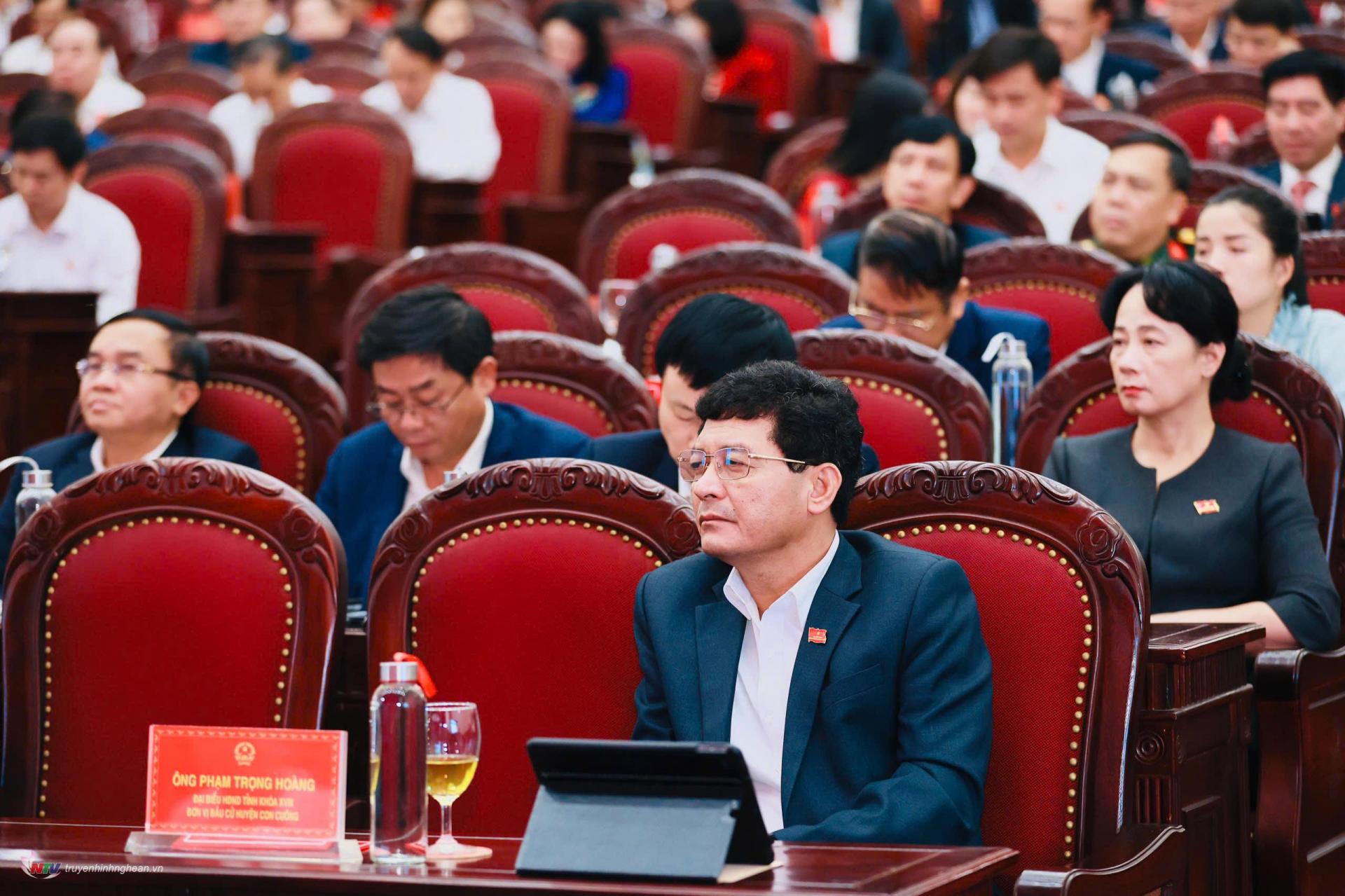 |
| Provincial People's Council delegates attending the meeting. |
Regarding the reason for the prolonged bidding, Ms. Le Thi Hoai Chung said that, according to regulations, the bidding process must go through a time period. In fact, the bidding process to organize procurement is difficult, not to mention that medical staff perform concurrently, so it also encounters many difficulties. For autonomous units of group I and group II, the decentralization to the unit head allows the decision to purchase for activities, except for the purchase of cars and the purchase of consumables. However, in the process of implementation, some documents are not really clear, sometimes controversial and have many different interpretations, so it is still slow in some units.
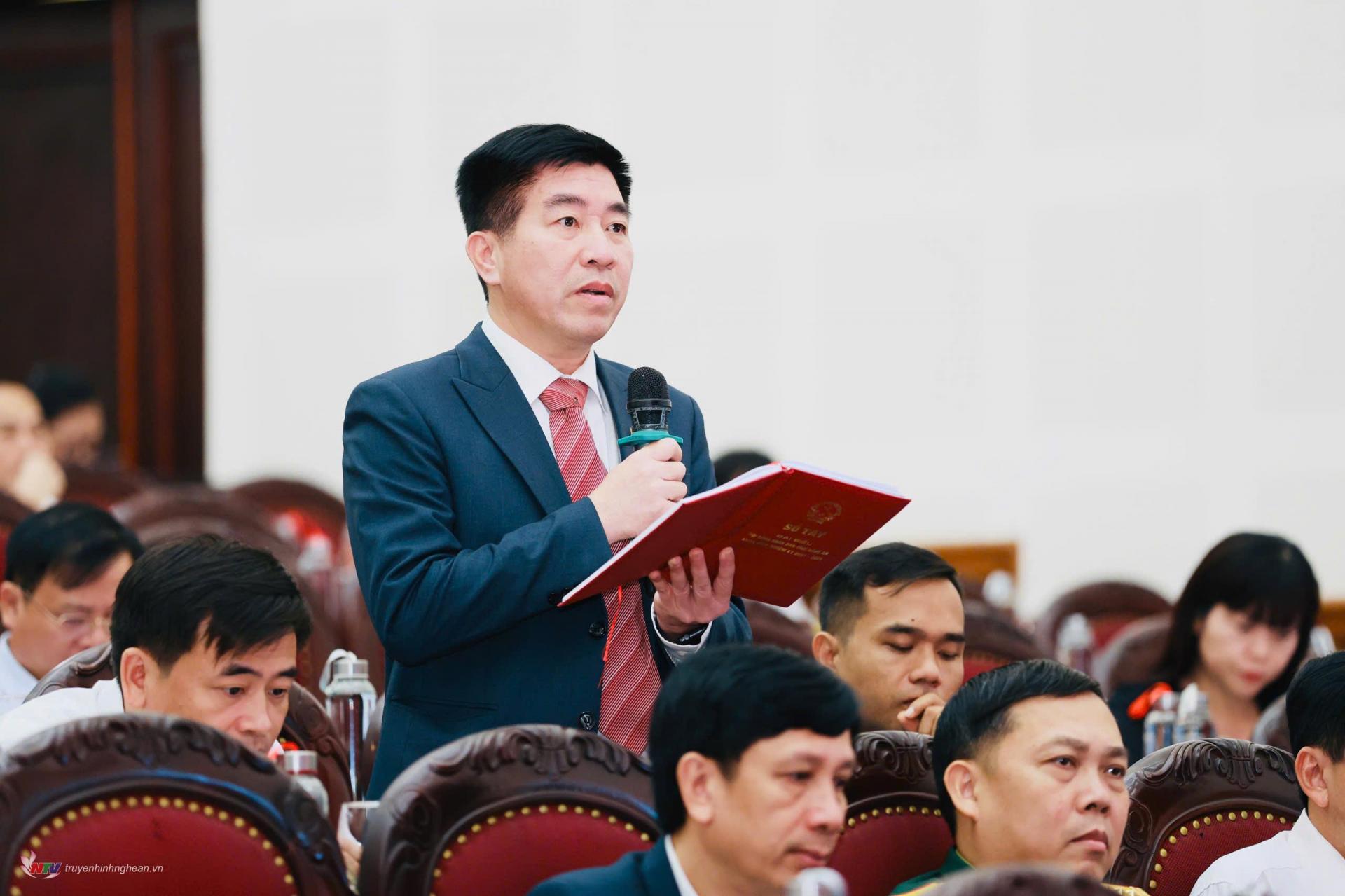 |
| Delegate Ho Van Dam (Quynh Luu unit) asked the Director of the Department of Health to inform about the current situation and the attraction of private medical facilities in recent times. |
In response to the question of delegate Ho Van Dam (Quynh Luu district constituency) requesting to inform about the current situation and attraction of private medical facilities in recent times; assessing the quality of private medical facilities. What policies does the industry have to attract high-quality medical examination and treatment facilities to invest in Nghe An? The Director of the Department of Health said that the industry has consulted on implementing many solutions to develop private healthcare. Up to now, in the province there are nearly 4,000 private medical and pharmaceutical facilities, including 720 medical practice facilities and more than 3,000 pharmaceutical practice facilities. The scale of private healthcare in Nghe An ranks third in the country, after Ho Chi Minh City and Hanoi. The ability to access high-quality healthcare in private healthcare in Nghe An is quite good, aiming to reduce patient overload in public hospitals. Assessing the quality of the private healthcare system, the Director of the Department of Health said that the development of infrastructure as well as basic equipment is spacious, adequate and modern. The medical staff is increasingly improved, of high quality; contributing to the success of medical examination and treatment in the province. To continue to promote the effective private healthcare system, Director of the Department of Health Le Thi Hoai Chung said that it is necessary to improve the quality of medical examination and treatment services; ensure the interests of the people as well as ensure the legal interests of businesses. From there, encourage the private sector to participate in the healthcare sector.
According to Ms. Le Thi Hoai Chung: "The industry will continue to advise and propose solutions to continue implementing the health network planning according to Resolution No. 39 of the Politburo; coordinate to advise on preferential policies on land and taxes; encourage private health units to increase joint ventures and partnerships and strengthen inspection, supervision, and limit negative aspects in private health care".
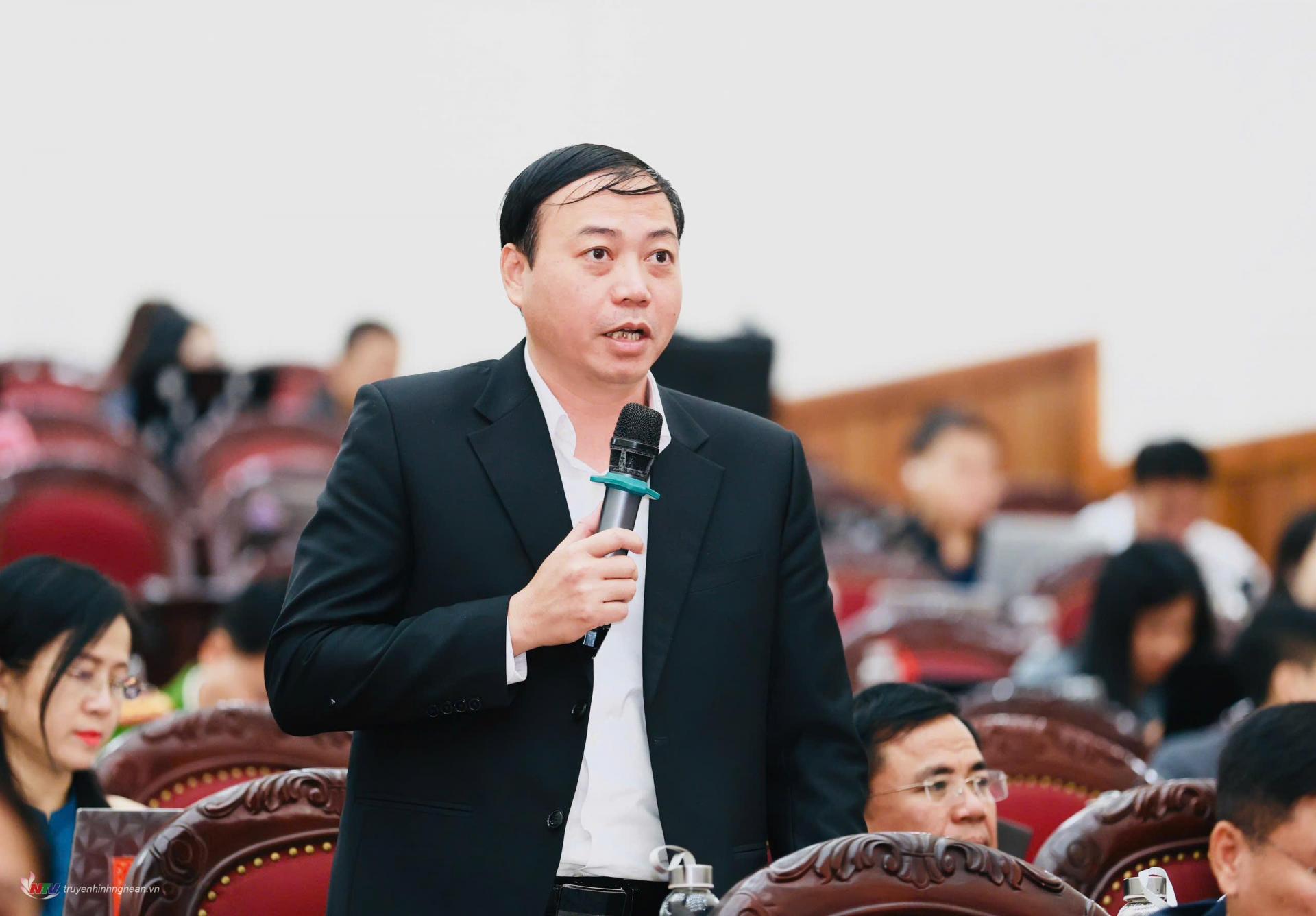 |
| Delegate Chu Duc Thai (Dien Chau unit) asked the Director of the Department of Health to inform about the current status of human resources, equipment and the ability to perform specialized techniques at the Provincial General Friendship Hospital and Nghe An Oncology Hospital. |
Participating in the questioning, delegate Chu Duc Thai (Dien Chau unit) asked the Director of the Department of Health to inform about the current status of human resources, equipment and the ability to perform specialized techniques at the Provincial General Friendship Hospital and Nghe An Oncology Hospital? What orientation does the industry have for these two hospitals so that people can trust in the quality of these two end-line hospitals?
Responding to the question, Director of the Department of Health Le Thi Hoai Chung said that in order for people to trust and choose to go to the two final hospitals of the province for medical examination and treatment, it is necessary to continue investing in equipment, facilities, human resources, deploy specialized techniques, strengthen cooperation with central hospitals, improve service quality, apply smart medical examination and treatment projects, and make the distance with central hospitals increasingly shorter.
At the question and answer session, the chairman of the meeting raised the question that although Nghe An Dermatology Hospital was assigned Group II autonomy, over the past 4 years, the hospital's operations have encountered many difficulties, with workers not receiving salaries for 8 months at a time. One of the reasons is that the assignment of Group 2 autonomy is not appropriate, operations are ineffective, and salaries and benefits for workers cannot be paid. Sharing that this is a very worrying issue for the industry, the Director of the Department of Health said that Nghe An Dermatology Hospital was established in 2019, on the basis of upgrading from the Provincial Center for Dermatology and Leprosy Prevention. This is a public service unit at the provincial level, implementing Group II regular expenditure autonomy. The establishment of the Dermatology Hospital is a correct policy of the Party and the State to meet the needs of specialized dermatological examination and treatment in the province. However, according to the director of the Nghe An Department of Health, in the past, the Hospital has not performed its tasks well, has not promoted its responsibility in building and developing the hospital; Management work is unscientific, not shared with staff, the number of people coming for examination is decreasing.
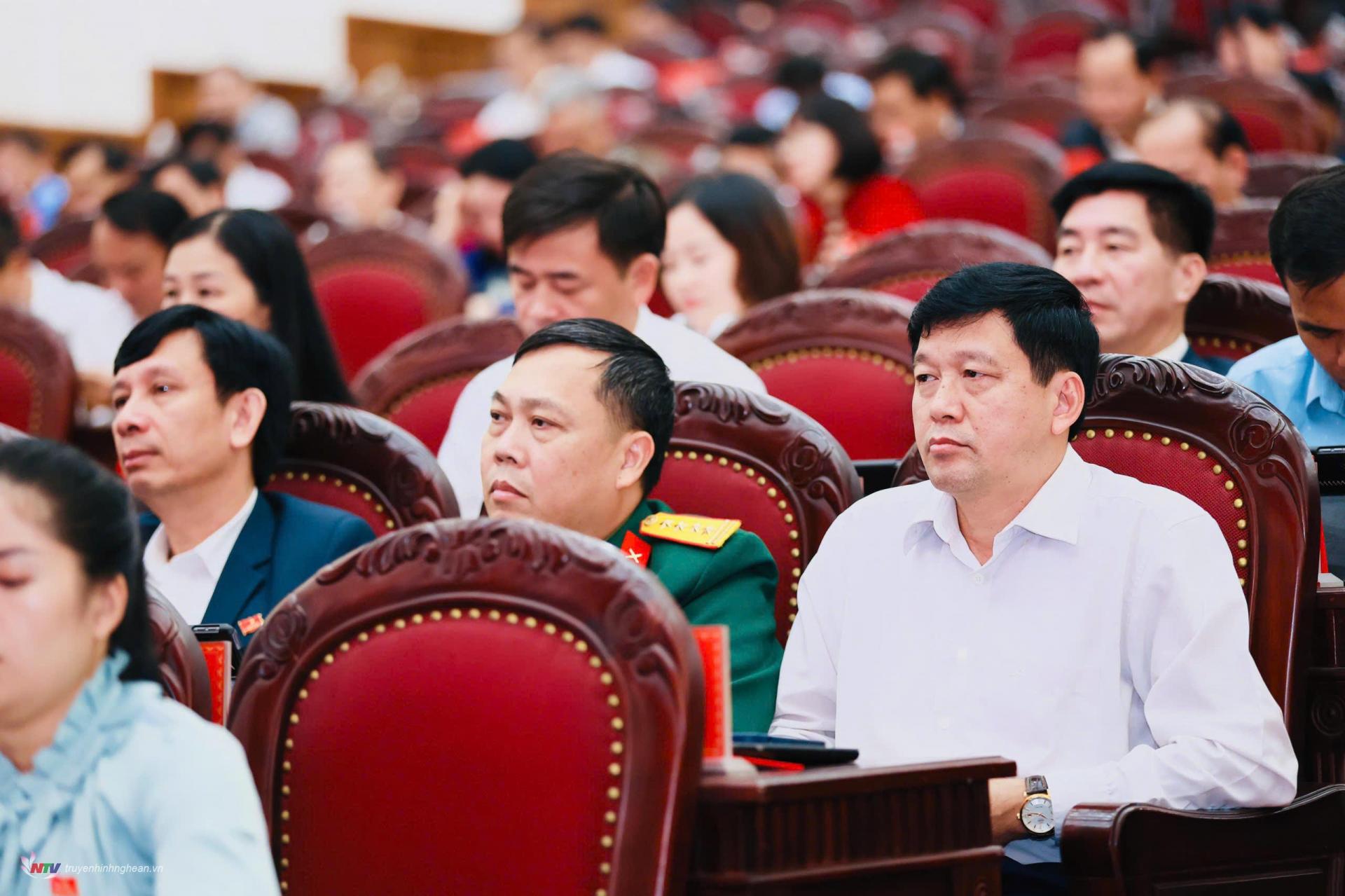 |
| Provincial People's Council delegates attending the meeting. |
To solve the hospital's difficulties, the Director of the Department of Health said that the Department has organized many working sessions to listen to and assess the current situation, and find ways to resolve difficulties and obstacles. In addition, it has assigned 1 Department leader in charge, 1 pharmacist, and 7 nurses from other hospitals to support the hospital; reviewed and established departments and rooms to meet the requirements and increase patient admission.
To quickly overcome the weaknesses in hospital operations, Ms. Chung believes that first of all, the human factor is extremely important. Therefore, it is necessary to improve human resources, find qualified human resources, build solidarity; establish departments and rooms and improve conditions to organize better medical examination and treatment, and find spearheads in dermatology.
 |
| Overview of the questioning session. |
Concluding the question-and-answer session, Standing Vice Chairman of the Provincial People's Council Nguyen Nam Dinh assessed: The question-and-answer session on issues related to the health sector took place in an enthusiastic, frank spirit, with a high sense of responsibility. The delegates of the Provincial People's Council raised questions for debate, specifically, concisely, and directly to the point, reflecting the content that voters and people are interested in the health sector. At the question-and-answer session, 13 delegates asked questions, with 17 related questions. Director of the Department of Health Le Thi Hoai Chung, although she has only taken up the position since November 2024 and this is her first time answering questions before the Provincial People's Council, has a firm grasp of the issues, is open-minded, and fully and frankly answers the questions raised by the delegates. Directors of the Departments of Home Affairs, Foreign Affairs, Finance, and leaders of the Provincial Social Insurance Department also participated in answering questions.
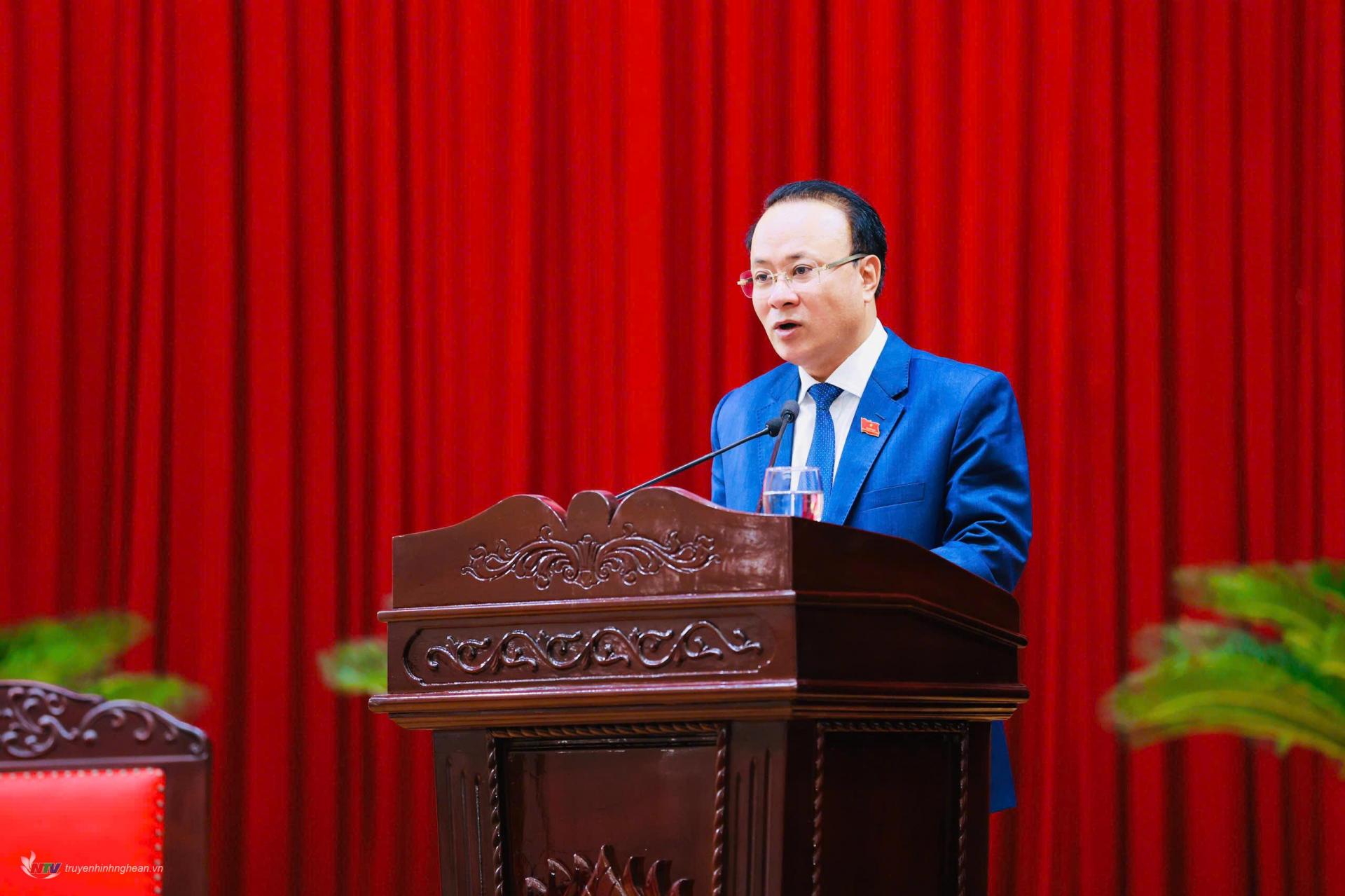 |
| Mr. Nguyen Nam Dinh - Member of the Provincial Party Standing Committee, Permanent Vice Chairman of the Provincial People's Council delivered a concluding speech. |
In recent times, the Provincial People's Committee and local departments and branches have proactively implemented policies and regulations in the health sector, taking good care of people's health, the quality of medical examination and treatment has been increasingly improved, facilities and human resources have been given attention, many provincial hospitals have been recognized as final hospitals in the North Central region. The health sector has proactively responded to natural disasters and epidemics, especially the Covid-19 pandemic.
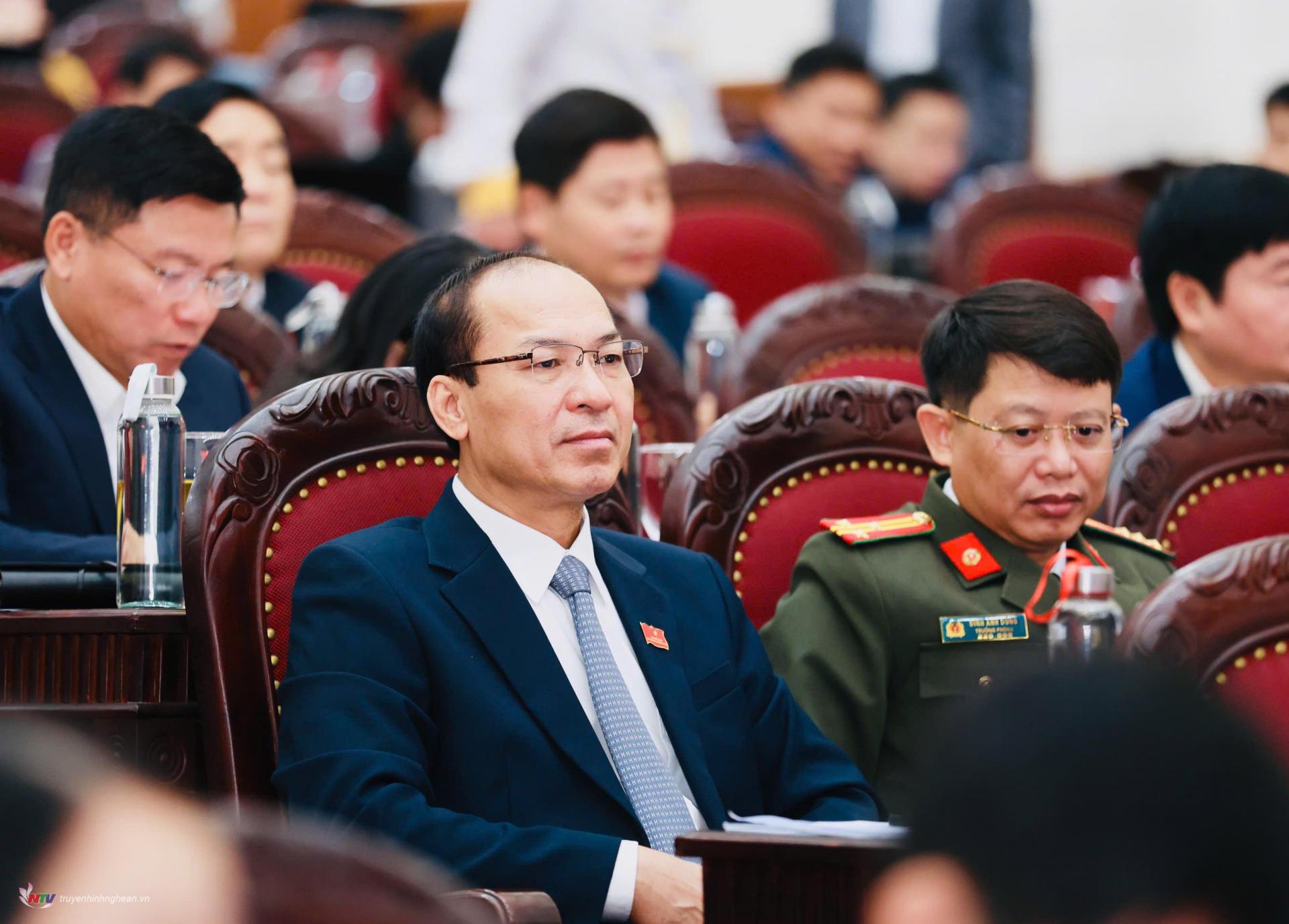 |
| Provincial People's Council delegates attending the meeting. |
Voters and people highly appreciate the sense of responsibility of the medical staff in performing their assigned tasks. The health sector has actively implemented the delegation of autonomy to a number of public service units, creating motivation for units to exploit revenue sources and improve the level of financial autonomy to carry out professional activities. Reasonable use of budgetary funds contributes to reducing the burden on the state budget, creating a competitive environment to improve the quality of medical examination and treatment among medical facilities in general. The work of preventing child malnutrition in recent years has achieved many positive results and basically completed the assigned annual targets.
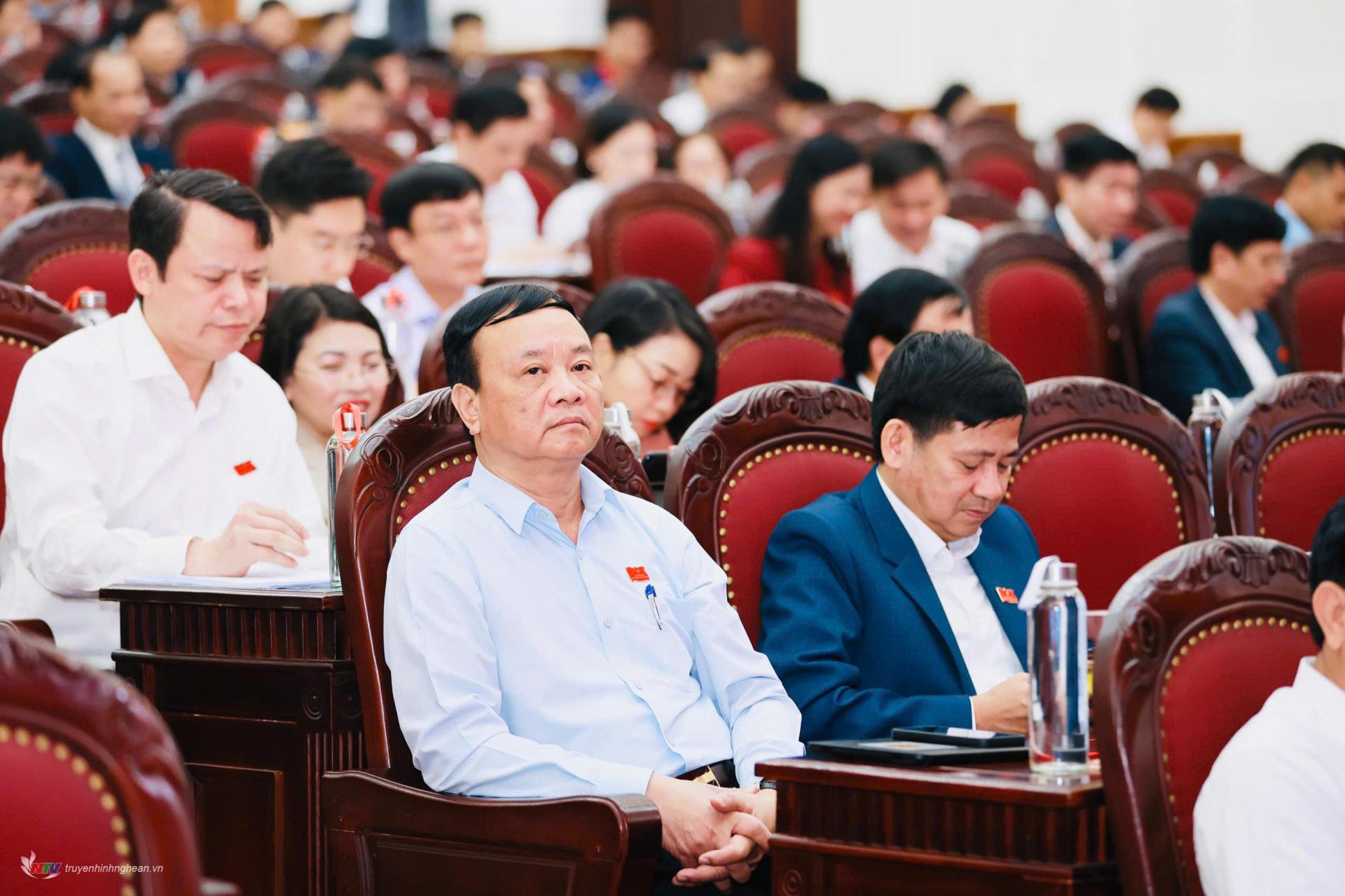 |
| Provincial People's Council delegates attending the meeting. |
However, in addition to the achieved results, the activities of the health sector in general and the contents that the delegates questioned still have some limitations: That is, the quality of health insurance examination and treatment at some facilities is still inadequate, there is still a shortage of drugs and medical supplies locally, patients have to buy medicine themselves but are not fully paid, the bidding and purchasing of drugs and medical supplies are still stuck, leading to the situation that some units do not fully and timely purchase necessary medical supplies and equipment. Along with that, the autonomy at some public health facilities is still stuck, so the level of autonomy at some group 3 and group 4 units is not high, so the career revenue is low, mainly depending on the state budget. There is not a strong enough mechanism to attract high-quality staff to work at public health facilities in the area. Besides, the rate of malnutrition in children under 5 years old, although having achieved many positive results, is still high compared to the whole country. /.
Source: https://www.truyenhinhnghean.vn/thoi-su-chinh-tri/202412/nhan-luc-chat-luong-cao-tai-y-te-cong-lap-vi-sao-van-kho-thu-hut-4ab3fb6/




![[Photo] Prime Minister Pham Minh Chinh starts construction of vital highway through Thai Binh and Nam Dinh](https://vphoto.vietnam.vn/thumb/1200x675/vietnam/resource/IMAGE/2025/5/12/52d98584ccea4c8dbf7c7f7484433af5)
![[Photo] Prime Minister Pham Minh Chinh receives Swedish Minister of International Development Cooperation and Foreign Trade](https://vphoto.vietnam.vn/thumb/1200x675/vietnam/resource/IMAGE/2025/5/12/ae50d0bb57584fd1bbe1cd77d9ad6d97)
![[Photo] Prime Minister Pham Minh Chinh works with the Standing Committee of Thai Binh Provincial Party Committee](https://vphoto.vietnam.vn/thumb/1200x675/vietnam/resource/IMAGE/2025/5/12/f514ab990c544e05a446f77bba59c7d1)









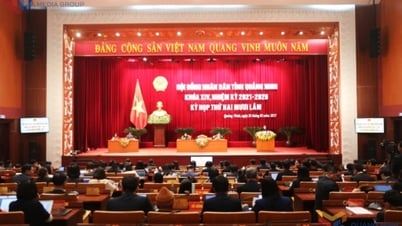










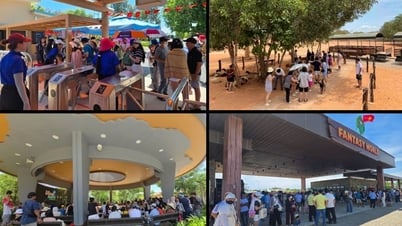






















































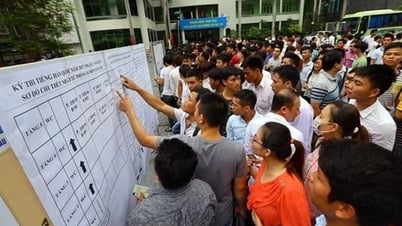















Comment (0)